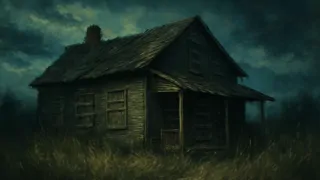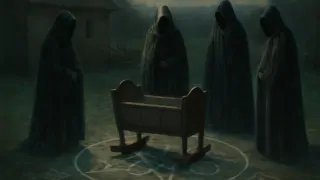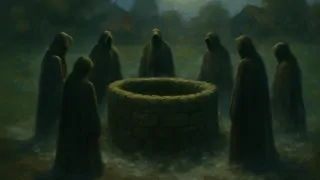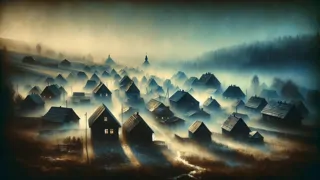Introduction
Under a bruised and brooding sky, the village of Dunwich lay cradled in a vale of rolling meadows and ancient pines. The wind carried a sharp tang of decay that drifted across weathered fences and sodden fields, stirring rusted farm tools half-buried in soggy earth. Moonlight spilled in silvery rivulets over the low-slung rooftops, illuminating swaying curtains and unmended shutters. On nights like this, locals said they could hear low, rumbling whispers weaving through the hollows—echoes of an older world, unkind and unblessed. Deep within the tangled copses beyond town, the Whateley homestead stood half-hidden behind skeletal oak branches. Its windows were shuttered tight, its porch sagging, as though the house itself bore the weight of unspoken sins. Here, in that decrepit dwelling, a secret older than any inhabitant would burst forth, twisting the thin barrier between mortal life and something infinitely more grotesque. In the quiet hours before dawn, where every breath felt like trespassing, the ground would tremble. A child would be born that knew the shapes of darkness and dreamed of ancient doors. And when the first terrible cry rent the night, Dunwich would never be the same.
Origins of the Unnamed Horror
Deep in the heart of Dunwich’s shadowed hills, the Whateleys had lived for untold generations, guarding an inheritance steeped in superstition and dread. Grandfather Whateley would sit by the hearth in the old farmhouse, his gnarled fingers tracing symbols carved in oak beams above the hearth. He whispered of preternatural alliances made beneath a black sky, of pacts sealed in the hush of summer midnight. Villagers heard the stories—of hooded gatherings in the thicket, of iron talismans buried at crossroads—and they turned uneasy eyes toward the ancient stone well at the edge of the property. It was said that more than water slept down in those depths: something that stirred when the moon was high and thick with portent. Nathalia Whateley, the latest keeper of the family gloom, felt its weight daily. As a child, she watched her mother trace indecipherable runes across the windows, sealing unseen thresholds. On the eve of her birth, a thunderstorm raged unchecked, uprooting trees and scattering livestock. Then her infant cry answered a chorus of deeper, wild howls echoing across the fields. By dawn, a circle of scorched grass surrounded the house—as if something clawed its way free. Over the years, Nathalia’s dreams became corridors of shifting stone, where voices called from behind iron doors and unknowable shapes beckoned her toward cracks in the world’s fabric. She grew pale and silent, as though every fiber of her being reached outward, straining to pull something tangible into the realm of the living. When she finally married, the barn loft became her sanctuary. Villagers gossiped of midnight visitations, of faint weeping heard through thick walls. None dared disturb her vigil, for fear might be a gateway to calamity. Still, beneath the veneer of rural normalcy, the Whateley name carried a chill. And in that hush, unseen threads braided mortal hearts to an entity waiting for release.

[Additional narrative continues, exploring the unsettling legacy and hidden rites that summoned the horror. Each breath of wind, each flicker of lantern light, held the promise of revelation. As the family’s secret would spill beyond their borders, the very land would shudder under the weight of a power mankind was never meant to command. With careful tenderness and bone-deep fear, events marched inexorably toward the moment when Dunwich would confront its oldest shadow.]
The Night of Unmaking
When at last Nathalia’s labor began, it was in the dying hours of a moonless night. Wind whipped through the gables and rattled loose shingles, while indiscriminate lightning tore torn curtains into frenzied dance. Inside the small chamber, servants trembled in the corners, clutching talismans of silver and iron. Father Whateley, his face ashen and eyes wild, painted sigils upon the walls in charcoal—desperate wards to bind what would soon draw breath. The midwife, her hands slick with sweat, murmured prayers that cracked on her lips. No blessing seemed enough. With each agonized cry, the farmyard erupted: cattle lowed in terror, dogs howled until their voices splintered, and the wind itself carried a low, hunger-filled moan. Then, through a narrow window, something dark and spindly slipped inside. A chill crawled across the stones. The candles guttered, singeing the midwife’s notes of invocation. In that flickering half-light, the newborn’s first scream was a banshee’s wail—shattering bone and bending air. Time stalled. The household held its breath in the pregnant silence that followed. And in that stillness, Nathalia’s eyes glowed with unearthly awareness, as though the horror she carried had claimed her soul before it left her body.

[The story delves into frantic attempts to rebuke a creature not yet named. As ropes of barnwood splinter and shadows lengthen into impossible angles, the boundary between birth and unmaking blurs. With each passage of incantation, reality fractures; unseen forces press at shuttered doors. A ritual begins that will either seal away the abomination or shatter Dunwich beyond repair.]
Dawn of Reckoning
By the time night yielded to a bruised, gray dawn, the creature had vanished. The barn lay in ruin: straw trampled, beams scarred by clawed gouges, the air thick with the stench of brimstone and blood. Villagers, drawn by the turmoil, found Father Whateley wide-eyed with madness and Nathalia’s chamber empty save for a single, obsidian feather. They whispered of a shape slipping through hedgerows—tall and spiny, with arms that curved like scythes. Cold footprints marked a winding trail into the fog. In the days that followed, livestock died inexplicably, fields rotted overnight, and the sense of lurking eyes grew with each falling dusk. The church bell tolled melodically but felt hollow, as if mocking hope itself. Scholars sent word that unnatural forces had been stirred, and magisterial voices warned of cosmic breaches. The town elders, in trembling conclave, resolved to seal the Whateley lands forever—yet discovered the old wards had been twisted into heralds of ruin. Nothing could hold what had tasted life. When children began to vanish, dragged screaming beyond the tree line, terror claimed Dunwich as its own. Yet some few souls—a local physician, a reclusive folklorist, and the innkeeper’s daughter—formed an uneasy alliance, unearthing ancient manuscripts and torn diaries. They pieced together the truth: the horror was no mere beast but a vessel, an avatar born to bind eldritch powers to the mortal realm. Only by performing one final ritual—at the well where the original pact was cast—could the town hope to banish the entity back to the void.

[The climactic confrontation unfolds beneath a sky lit by unnatural lightning. As the air grows thick with the scent of brimstone and chanting reaches a frenzied pitch, boundaries of flesh and spirit blur. Lives hang by a thread—will courage and unity prevail, or will Dunwich crumble under the weight of ancient, unspeakable dread?]
Conclusion
A hush fell over Dunwich as the final incantation echoed through the clearing. Lightning cracked, and a gout of inky darkness surged skyward from the ancient well, carrying the horror back beyond mortal ken. For a heartbeat, the world trembled on the knife’s edge between salvation and annihilation. Then silence—deep, trembling silence that tasted of grief and relief. When dawn finally rose, its pale light revealed battered faces and trembling hands, but no sign of the creature that had haunted their nights. In the ruined barn, only a single ebony feather remained as testimony of what had been, while fields once corrupt lay oddly verdant, as if spring might reclaim its hold. The Whateley homestead was abandoned, left to rot beneath the indifferent gaze of time. Townsfolk spoke of the horrors only in hushed tones, fearful that remembrance might summon those old shadows anew. Yet life returned—crops grew again, bells rang for Sunday service, and children’s laughter flitted through the air like fragile birdsong. Still, every year on that storm-scarred anniversary, the wind shifts and murmurs, as if recalling the shape that slipped from birth into nightmare. Dunwich went on, but in every resting heartbeat there remains the echo of that unholy cry—a warning that some doors, once opened, can never close entirely, and that in the hush of night, the horror still remembers its home.

















